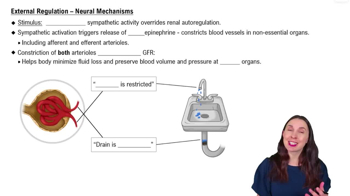The part of the brain responsible for the production of language is known as:
a. Wernicke's area
b. The prefrontal cortex
c. The auditory association area
d. Broca's area
 Verified step by step guidance
Verified step by step guidance Verified video answer for a similar problem:
Verified video answer for a similar problem:


 1:32m
1:32mMaster The Central Nervous System with a bite sized video explanation from Bruce Bryan
Start learning